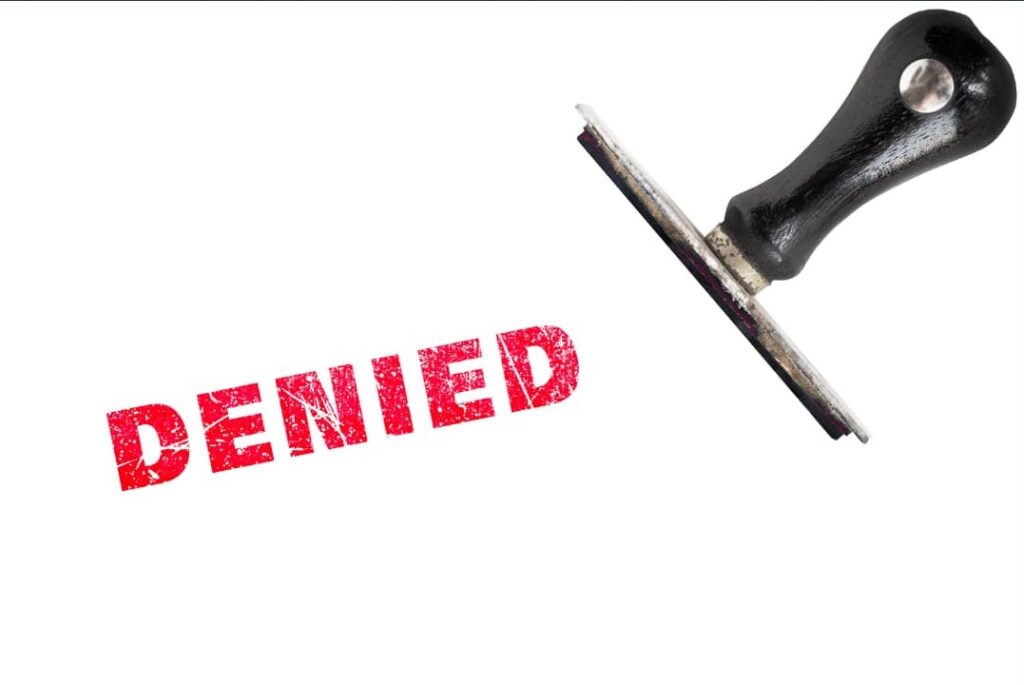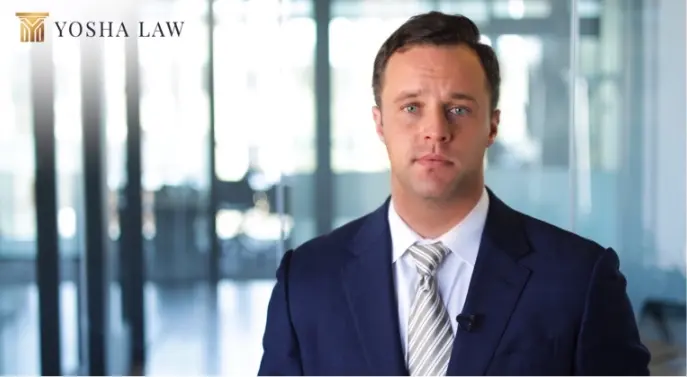Truck accidents are terrifying experiences. The massive size and weight of a commercial truck can cause significant trauma in even the most minor accidents. When you suffer in a truck accident, you want to know that you can receive just compensation.
Unfortunately, after a truck accident, you’ll often have to deal with multiple insurance companies, and proving liability, and the validity of your insurance claim, can prove difficult.
Insurance companies may be reluctant to offer you a valid settlement and could even completely deny your claim. The good news is that you may still have legal recourse to ensure you receive the compensation you deserve. A truck accident lawyer can help you to explore your options and the strength of your personal injury claim.

Why your truck accident claim could be denied
When you follow the appropriate steps for your truck accident claim, you may anticipate that the insurance coverage process will go smoothly, and you’ll be able to recoup the losses you’ve endured.
Unfortunately, insurance companies are notorious for discovering reasons to lowball an offer of compensation or denying your claim completely. In a truck accident, you may have to deal with multiple insurance companies which can make the claims process extremely difficult.
The reasons your initial claim might be denied include:
- Failure to meet the filing deadline:
Most insurance companies require you to file your claim within 30 days of your accident. However, in a truck accident, you may need to file multiple claims with different insurers.
For example, the trucker, trucking company, truck manufacturer, and cargo company may hold liability in your accident. It’s important that you file your claims with each liable party’s insurer in a timely manner.
- Failure to prove liability:
Although you can begin the insurance claims process — and even the personal injury lawsuit process — on your own, a truck accident lawyer can help you determine which parties are at fault in your accident.
On your own, you may choose to concentrate on filing a claim with the trucker’s insurance company, but the majority of liability in your accident could be held by the cargo company or tracking company. This could lead to a denial of your claim against the trucker.
- Failure to seek medical attention:
Even if your injuries seem minor, it’s vital that you seek medical attention immediately after your truck accident.
Unfortunately, self-diagnosis or medical attention sought months after a collision don’t provide legal proof and an insurance company may deny your truck accident claim if you don’t have documented proof of doctor’s appointments and medical treatment.
- Pre-existing medical conditions:
Insurance companies may look for ways to deny your claim. If you have a pre-existing condition that affects the area of your body injured in your truck accident, an insurer may choose to deny your claim.
- Lack of evidence:
Although you may not choose to file a personal injury lawsuit, you will still need evidence to prove your insurance claim. Thus, consulting a truck accident attorney before you proceed with your claim may be a wise choice.
A lawyer can help you gather the appropriate documentation and evidence to prove your claim and prevent an insurance company from denying your compensation.

You Get ONE Shot At Full Justice. We Make Sure You Take It.
*Available 24/7 & Obligation-Free
How Yosha Law can help
If your truck accident occurred in Indiana, the compassionate and knowledgeable team at Yosha Law can help. You may face mounting, unexpected costs and be dealing with significant emotional trauma and physical injury as a result of your crash. Even through the insurance claim process, you need to be able to focus on your recovery.
A truck accident lawyer can help you navigate the murky liability waters of insurance claims and negotiate with insurers to prevent denial of your claim. Yosha Law can help you seek the justice you deserve, and advise you on your insurance claim.
If your claim is denied, we can ascertain whether the insurer had a legitimate reason for denial.
What to expect from our truck accident lawyers
Throughout your truck accident claim process, you can expect consistent and honest communication from our team. We will act as your representatives with the insurance companies and help to reduce the possibility of a denied claim.
We’ll help ensure that your claim is backed up by credible evidence, and you can expect us to do the following to keep your claim from being denied:
- Calculate your potential damages:
The monetary compensation you might seek in an insurance settlement is broken down into different types of damages. We’ll help you to understand what damages your claim should include, and calculate your damages to determine the monetary amount of your claim.
- Gather evidence:
We’ll collect evidence of your medical treatment, along with forensic evidence from the scene of your accident (including police reports, photos, and videos), and evidence of lost wages and other verifiable losses you’ve incurred.
- Eyewitness and forensic expert interviews:
Eyewitnesses to your truck accident and forensic experts, including crash reconstructionists and commercial truck experts, may prove vital to keeping your claim from being denied. We’ll contact the insurance company and share interviews from witnesses and experts to bolster your claim.
Can you file a lawsuit if your insurance claim is denied?
When you accept a settlement from an insurance company, you may not have a valid claim to any further compensation. However, you may still have legal recourse if your insurance claim is denied.
In Indiana, the Indiana Department of Insurance may overturn a denied claim. Similarly, if you have evidence that your denial was erroneous, you may be able to proceed with a personal injury lawsuit against an insurer.
Truck accident laws you should know
In Indiana, comparative fault laws (also known as comparative negligence) could impact your truck accident claim. Comparative fault regulations state that if you hold over 50% of liability for your accident, you may not have a valid claim. If you’re over 0% liable, but under 50%, your settlement amount may be reduced.
If your truck accident claim is denied and you choose to file a lawsuit, most states have a statute of limitations in place that requires you to file by a certain date. Indiana code § 34-11-2-4 mandates that you file before two years have elapsed from the date of your accident.

How to prove negligence in a truck accident case
In order to bolster your claim and avoid denial from an insurer, you’ll have to present sufficient proof of negligence and liability. Although you may gather this evidence on your own, a knowledgeable truck accident lawyer can offer efficient help.
A trucker’s driving record and driving logs, lack of safety and training, poor truck maintenance, improperly stored cargo, and faulty truck parts may all factor into the cause of your truck accident. Thus, multiple insurance companies may be on the hook for your compensation.
The following may provide evidence of negligence and liability in your truck accident claim:
- Black box:
Commercial trucks are equipped with data recorders that work in a similar fashion to a plane’s black box. A truck’s black box may give you evidence of the cause of your accident.
- Truck’s logtime records:
Truckers must take time off between their driving routes and keep detailed logtime records of the time they spend on the road. If a logtime record reflects drive time violations or isn’t accurate, this could prove a trucker’s negligence in your collision.
- Manufacturer recalls and safety history:
If you discover that the truck manufacturer has failed to issue a recall for widespread issues or has a history of covering up safety violations, this may prove liability in your truck accident.
- Maintenance, safety, and training:
A trucking company must follow a strict maintenance and safety schedule, and is required to ensure their truckers are properly trained and hold correct licenses. If company records or employee testimony reflect negligence in these areas, the trucker’s employer could be legally on the hook for your compensation.
Although it isn’t impossible to handle a denied claim on your own, a truck accident lawyer may be better equipped to ensure all legal avenues are effectively explored.
At Yosha Law, your path to justice is our greatest priority. You don’t have to handle a denied truck accident claim on your own. Let us guide you through the claims process so that you can focus on your path to healing.
Contact us for an obligation-free consultation today.







